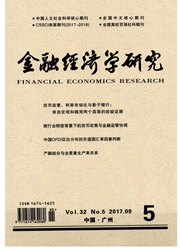

 中文摘要:
中文摘要:
以资源资本化为实践逻辑的基本框架,重新解读高货币化率背后的内生货币供给现象得出:资源资本化是货币化进程的强大内驱力,在渐进改革的市场化进程中,政府持续不断地将各类要素和其他资源推向市场,使得各类资源持续不断被资本化,由此带来大量的实质性货币需求,从而拉动了较强的货币供给。伴随着自然资源、劳动力资源、资金要素、技术要素、管理要素等资源和要素市场的加速开放和市场化程度的持续加深,中国的资源资本化进程还在加速。由此,中国的经济高货币化进程还将持续一段时期.直至资源资本化推动的M2增速低于GDP增速为止。
 英文摘要:
英文摘要:
Framed by the practical logic of resources capitalization, this thesis reinterpreted the phenomenon of endogenous monetary supply covered by high monetization ratio. In this thesis, the author proposed that capitalization of resources is the great driving force of the process of monetization. The government marketized all kinds of factors and resources continuously in the process of marketization in gradual reform, this brought about substan- tial real demand for money in light of capitalization of various resources, as well as stronger money supply. With the opening up of some factors and resources such as natural resources, labour, capital, technology and managerial factors and the deepening of marketization, China's resources capitalization is still accelerating. Based on the up-mentioned points, the high monetization ratio of China will see a longer life until the growth rate of M2 which is driven by resources capitalization is lower than that of GDP.
 同期刊论文项目
同期刊论文项目
 同项目期刊论文
同项目期刊论文
 期刊信息
期刊信息
